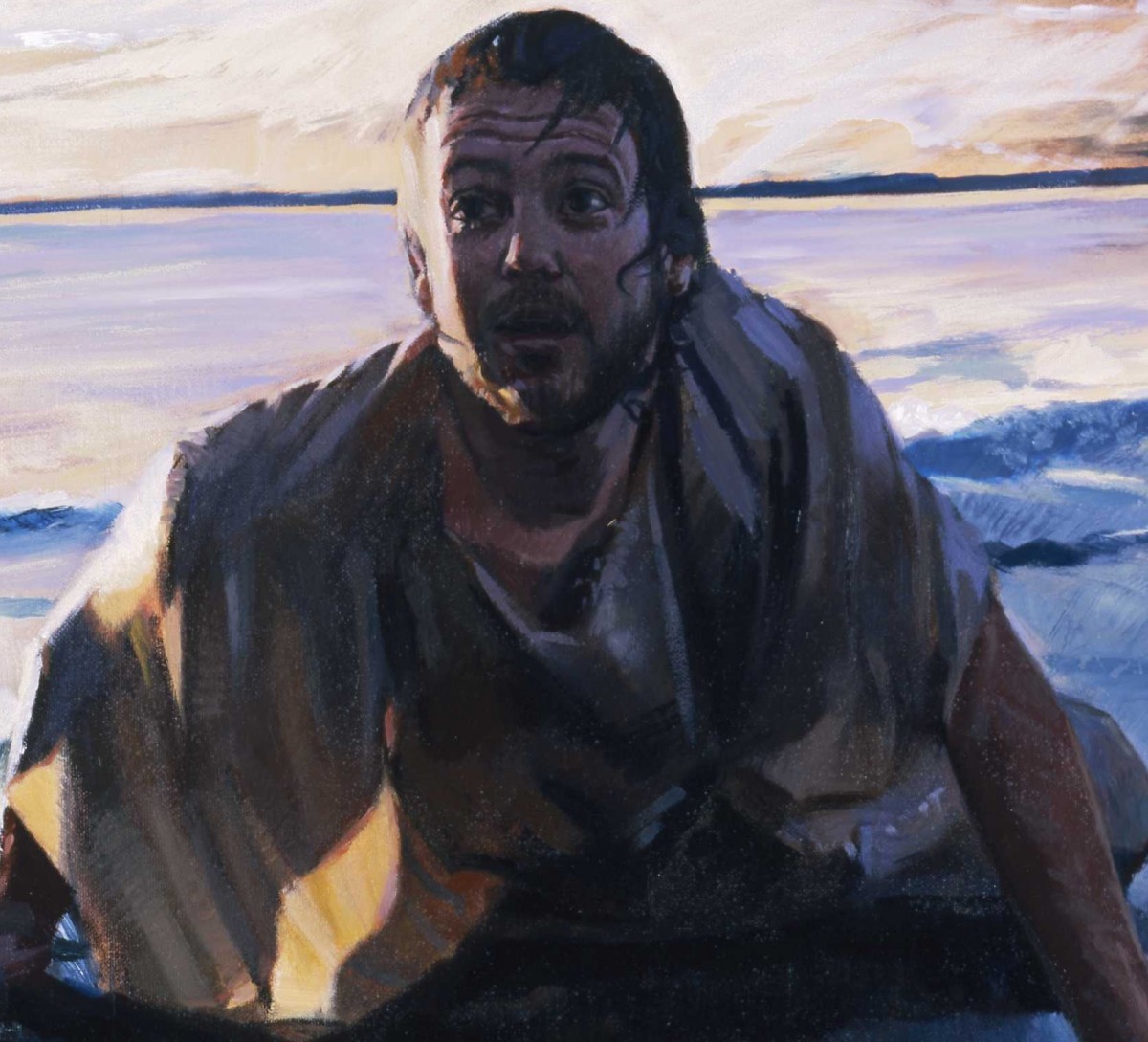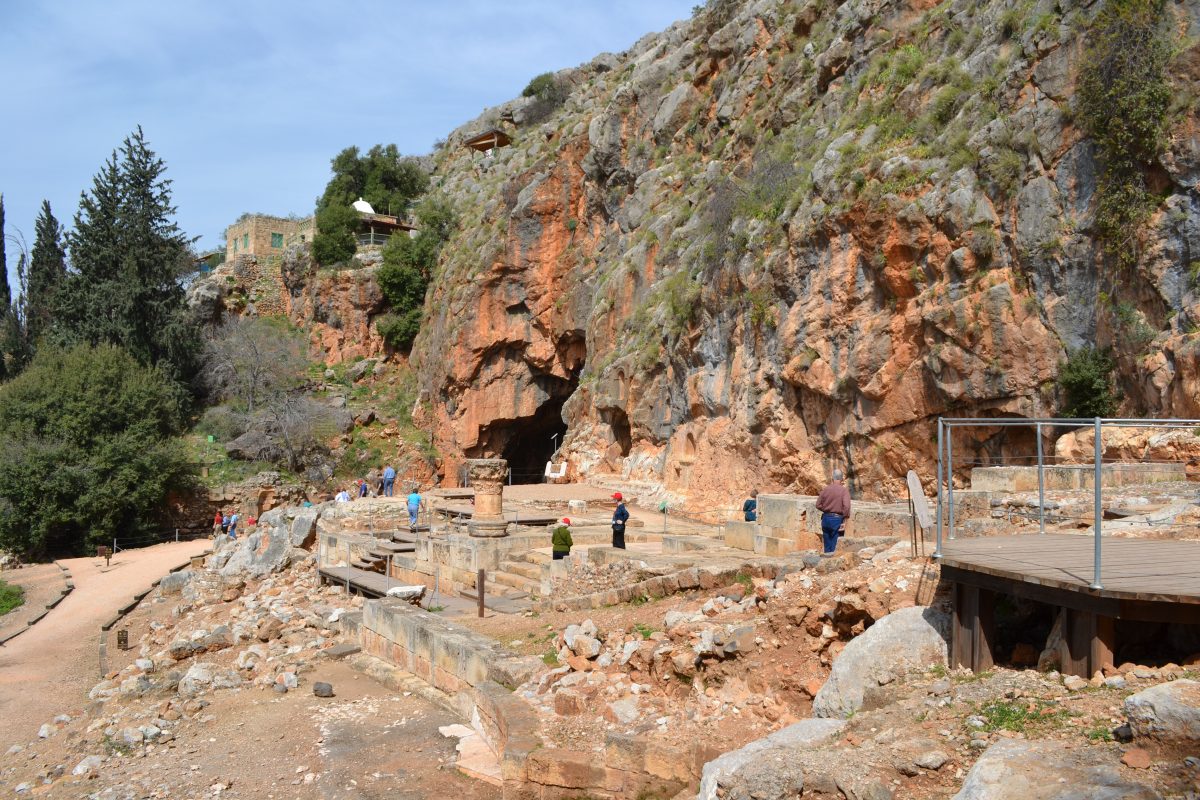Background Passages: 2 Kings 6:1-7; Proverbs 3:5-6
I don’t remember exactly when the tree in my in-laws’ back yard died or when they chopped it down. I just remember that the stump was in the way of a wooden deck they wanted to build.
I took my turn among the brothers-in-law wielding an axe, chopping through the thick roots of the once thriving oak. At one point as I pulled the axe over my head, the axe head came off and flew across the yard, leaving me holding the handle.
I have no idea why I thought about that this week. Somewhere in the back of my mind I remembered a similar story in the Bible. I had to search to find it, but I did. Some of God’s greatest lessons come from unexpected sources.
One reason to read the Bible is that we sometimes find practical life lessons through relatively unknown passages. God has a way of using the obscure to teach the what ought to be obvious. Timothy tells us as much, “All scripture is God-breathed and is useful for teaching, rebuking, correcting and training in righteousness.” (2 Timothy 3:16)
I found one of those nuggets of truth from the life of the prophet Elisha.
Elisha spent some of his time in ministry training a new group of God’s prophets. Who wouldn’t want to learn from this incredible man of God? God rewarded Elisha’s leadership by sending more and more men to sit at his feet.
At one point, the students came to the master and requested that they be allowed to cut down a few trees to build a new meeting house for they had outgrown the place where they were.
“Let us go to the Jordan and each of us get a pole and let us build a place there where we can meet.”
They were willing to do the work required. Commendable.
Elisha liked the idea and gave his permission.
The men held Elisha in such great respect that they asked him to accompany them to the Jordan River to find the best timber for the task. Elisha made the journey with them.
Here’s where the story gets interesting. One of the young prophets didn’t own an axe. Eager to be a part of what they must have considered God’s work, the man found a neighbor willing to lend him an axe.
When they arrived at the Jordan, each man found a suitable tree to cut down and the riverbed echoed with the sounds of iron on wood.
I can picture our young prophet wielding his axe, sending the chips flying as he cut into the timber. Then, in the middle of a powerful back swing, the axe head slipped from the handle, the force of the swing flinging it into the river with a heavy splash. The tool he borrowed buried itself in the muddy bottom of the Jordan.
“Oh no, my lord!” he cried out. “It was borrowed!”
It seems a small problem to us, but to this poor, young prophet it loomed large. Not only could he not finish his task, but the loss represented a significant financial burden. In those days, you see, an iron axe was a precious and expensive commodity. According to Old Testament law, if a man lost or damaged another man’s property, he was required to replace it or pay the cost of a new one. Chances are if he had to borrow it in the first place, he had no means of paying to replace it.
Many of our problems are like the one encountered by this young prophet. Through no fault of our own…at a time we least expect it…even while doing good work…we find ourselves facing a situation. We lose something of value entrusted to us. We find ourselves in financial difficulty beyond our means. We encounter illness or injury that collapses our world and leaves us wondering what we can possibly do.
That’s probably why the prophet cried to his master in such obvious distress. “Oh, my lord!” That’s probably why in our times of despair we cry out, “Oh, my Lord!”
Here’s the first lesson that comes to me from this story. It’s always best to learn to trust God before the problem comes. These young prophets were assigned an important task. When Elisha gave his permission, he didn’t intend to go with them. However, they trusted Elisha and needed his presence as they went about their task. As a result, when trouble came, when this man cried out in despair, his master was already there.
We fail ourselves, more often than not, when we think we are capable of dealing with life…both the good and bad times…without asking God to go with us. At the beginning of each new day, new task or circumstance, we ought to thank God in advance for his work in our lives. To being open to his guidance in every aspect of what we say and do. Then, when the crisis comes, we can cry out to him and knowing…trusting…that he is there.
The writer of Proverbs expressed it this way…
“Trust in the Lord with all your heart and lean not on your own understanding. In all your ways acknowledge him and he shall direct your paths. (Proverbs 3:5-6)
I can picture the man diving in the murky water to retrieve what he could not see. Hands groping along the bottom with the faint hope of touching the metal object. Each time he comes out of the water empty-handed.
He stands chest-deep in the river, water dripping down his face and off his beard. Anxiety written in his eyes. When he looked hopelessly at his teacher, Elisha asked him a question.
“Where did it fall?”
When the man pointed to the general spot in which the axe head sank, Elisha threw a stick in the river and…the iron axe head floated to the surface. How’s that for defying nature, Archimedes?
Then, in a remarkably practical moment, God’s prophet turned to the young man and said, “Lift it out.” He didn’t levitate into his hands. He didn’t pick it up himself. He asked the young man to do his part in the miracle. The man waded through the water and grabbed what had been lost. After a moment of relief and celebration, the young prophet repaired the damaged handle and got back to work.
So, what’s the point?
I’ve never seen a floating axe, but I’m quite certain God has worked his wonders in my life…and in yours. He put people in my life at just the time I needed them, but I needed to take their hand. He opened doors of opportunity, but I had to walk through them. He whispered in my heart’s ear the solution to many a problem, but I still had to act. You see, God will meet our needs, but only as far as necessary for us to do our part.
Here’s how the story speaks to me.
Every day I rise, before I take a step, I need to ask God to walk with me through the day, trusting that he will honor that request. Believing in his presence brings a sense of hope, peace and purpose in the face of every problem I encounter. God will toss the stick in the waters of my life and give me the choice to pick up the floating chunk of iron or let it sink back to the bottom. He promises to do his part, but I must do mine, ever obedient to the leadership of the Holy Spirit in my life.
God will work faithfully in the lives of his children in our times of trouble and despair…in those times we cry out “Oh, my Lord!”
It’s my hope we all understand and embrace this truth long before the axe head falls in the water. Sooner or later, though, it will fall. So, next time you see the axe head floating on the water, pick it up.






